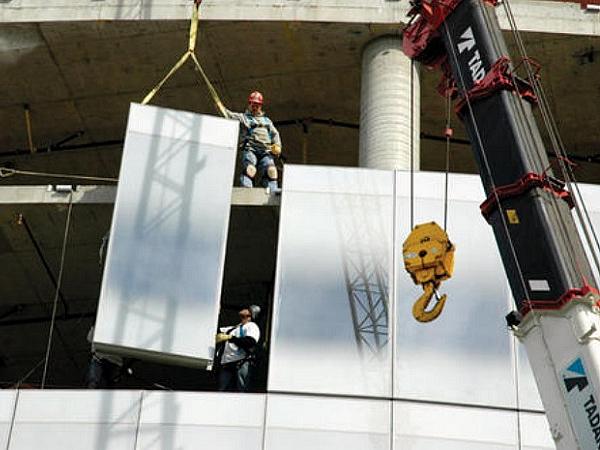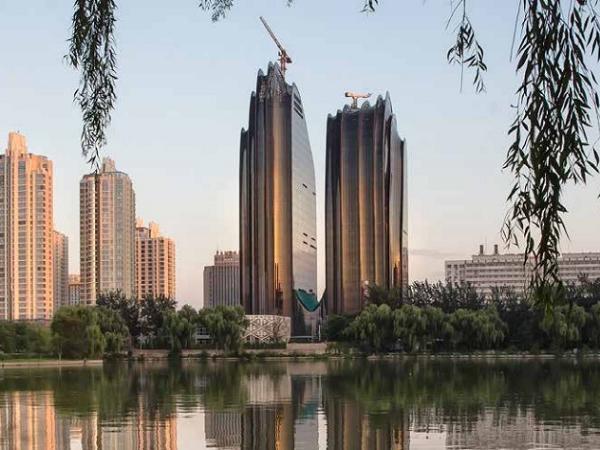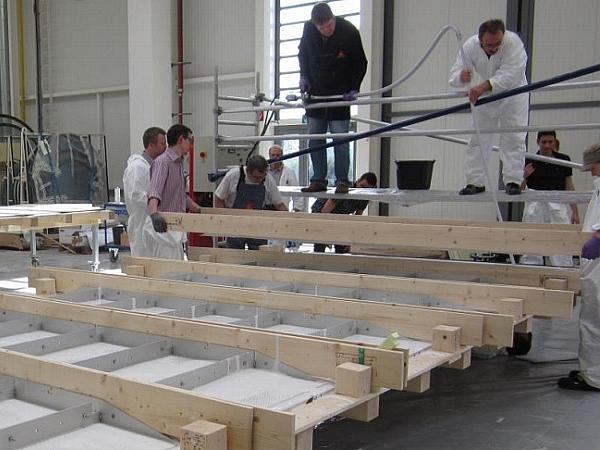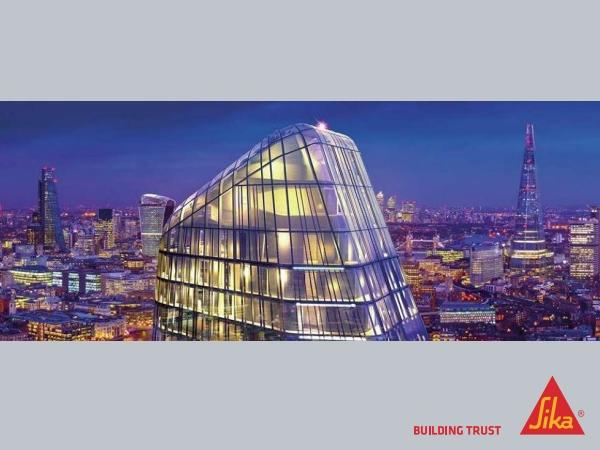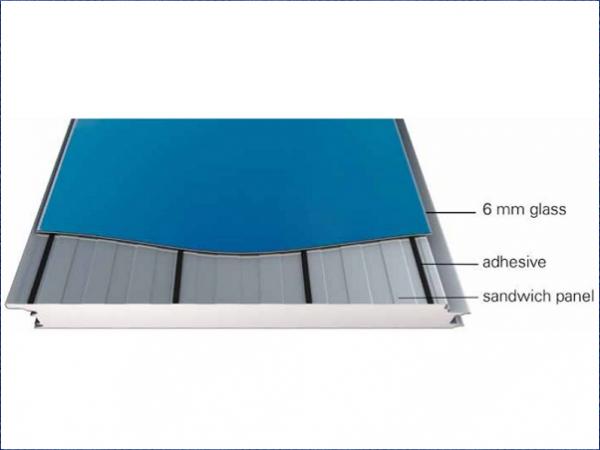Others also read
| The cold bending of glass in unique facades have been successfully completed in the past using structural silicone glazing (SSG) as the sole method of retention of the bending membrane.
| In the 1950s the flat glass industry had two separate products and sub-industries: plate glass and sheet glass. Float glass merged these two industries.
| Due to the tension stiffening of the polymeric interlayer resulting from the adhesion with the glass shards, laminated glass maintains significant stiffness and strength even when all glass plies are broken.
| The author compares different existing and new application systems for interleaving material for bending windshields.
| The aim of the paper to apply design thinking to the construction industry via recent case studies.
| In a flat glass laminating oven, glass-film sandwiches are located on rotating rollers and conveyed through a heating chamber in a continuous flow.
| Curtain wall design commonly uses insulating glass units for spandrel glazing to provide better visual harmony between vision and spandrel areas.
| In this paper, we present the workflow of design and construction of Chaoyang Park Plaza tower façade located in Beijing, China.
| Free-form cold-bent structural silicone glazed facades open the door to a new world of options for cost effective two-way curved and free-form shape facades.
| Vacuum Insulated Glazing (VIG) concept allows for a significant improvement of thermal insulation compared with the incumbent double-pane windows design.
| Vacuum Insulated Glazing (VIG) is a highly thermally insulating transparent flat panel that is constructed from two glass panes, separated by an evacuated sub-millimeter gap, and hermetically sealed around its perimeter.
| The vacuum insulating glazing (VIG) is a highly thermally insulating window technology that is thin in profile and light weight.
| Following a short overview outlining key design objectives, the fabrication process of an opaque composite glass panel is described in detail.
| Over the past few years London has enjoyed a building boom seeing a large number of developments particularly in the residential and commercial office sectors.
| Contemporary architectural transparency (understood as the optical property of the material) is constantly being redefined and, over the last decade, new design trends have developed related to transparent façades in architecture.
| The integration of smart glazing and adaptive façade in buildings can lead to large performance improvements and added functionality compared to conventional static building envelope systems.
| The Correct Adaptation of IR Thermometers and Cameras to Different Applications
| This paper proposes system concepts and fabrication methods for the use of ultra-thin glass in facades.
| Recently, the uniform load resistance of enamel coated glass plates has become a topic of interest with respect to proposed changes to ASTM E1300.
| As a manufacturer and supplier of monolithic, laminated and insulated glass panels, we often produce larger panels that must use heat-treated components, ionoplast interlayers and multi-layer assemblies.
| Façade transparency is becoming an increasingly significant design factor for both client and architect, which has aesthetic and comfort implications.
| Architectural preferences for commercial building continue towards increased transparency resulting in large lites of glass with minimal visual obstruction.
| In the last years contentions about anisotropies among customers and manufacturers occurred when using glass products, such as heat-strengthened (HS) or fully tempered glass (FT).
| Use of cold-bent and warped glass units in unitized curtain walling has been getting a state-of-the-art application for the last years.
| Glass-Sandwich-Facades are not conceived with new materials but are a new and innovative combination of proven components and technology – glass, structural adhesive, sandwich panels and window systems.

